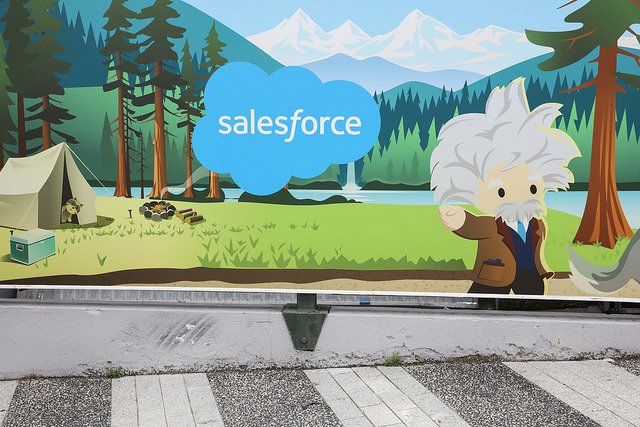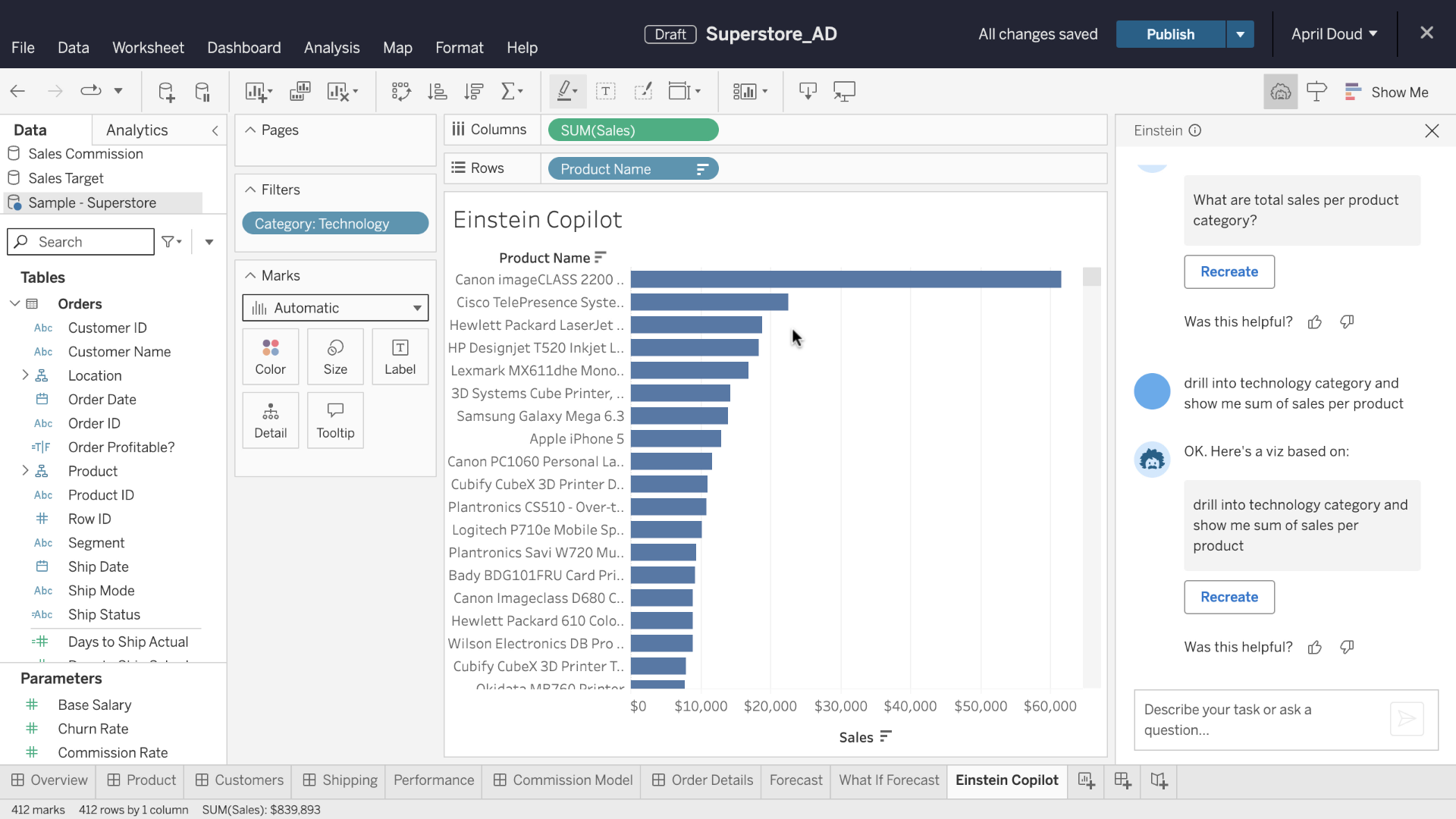 AI
AI
 AI
AI
 AI
AI
Salesforce Inc. has expanded the rollout of its generative artificial intelligence-powered Einstein Copilot tool, integrating it with its popular data visualization platform Tableau to help users explore their data and surface insights more easily.
The company said the aim of Einstein Copilot for Tableau, available in beta starting today, is to make its data visualization platform more accessible. The software is already somewhat user-friendly, allowing users to create visual and interactive dashboards through which they can explore business data to find trends using predefined paths. But it’s not all that simple, since users still require some sort of analytical skills.
Using Einstein Copilot for Tableau, those analytical skills are no longer a prerequisite, Salesforce said. Instead, every kind of worker will be able to use it to dive deeper into their data, using natural language commands to surface useful insights. The company says it works with any data source, including Salesforce Data Cloud, Excel spreadsheets and cloud and on-premises data warehouses.
Salesforce said Einstein Copilot for Tableau will be useful because organizations in almost every industry are looking for ways to improve their efficiency and enable better decision-making, and the rise of generative AI technology provides an opportunity to do so. According to a recent survey by Tableau, 83% of chief executives say they’d like their organizations to be more data-driven. Yet this contrasts with the reality, where just 30% of workers say their actions are informed by data analysis.
With Einstein Copilot for Tableau, the company said, every business user can become an expert in data analytics. They can even use the tool to suggest questions to users based on analysis of data and metadata, helping to reduce the numbers of change requests and updates from data analysts to drive faster data-informed decision-making.
The new tool is said to leverage the Einstein Trust Layer, which ensures that data can be explored in a compliant way without risking any security breaches or exposure to third-party AI models. The Einstein Trust Layer does not store user’s prompts or the underlying large language model’s responses, ensuring that there’s no risk of data being leaked.
Tableau CEO Ryan Aytay said it has become necessary for every enterprise employee to possess fundamental data skills. “Einstein Copilot for Tableau streamlines that skill development, helping novices become experts at understanding data, and enables everyone in the business to surface insights more quickly with trusted AI,” he said in a statement.
Einstein Copilot for Tableau is based on the original Einstein Copilot AI assistant tool that launched in beta in February, which plugs into every Salesforce application and is also capable of executing actions on user’s behalf. When it launched, Salesforce explained that Einstein Copilot AI has the ability to understand the context of what users are doing and allows users to “chat” with their corporate data.
Whereas Einstein Copilot AI is more generalized, Einstein Copilot for Tableau is designed specifically to handle data analytics tasks, with features including “recommended questions” that can help get users started. The company explained that workers who don’t have any data analytics skills may initially be stumped when they first attempt to investigate their data.
To get around that, the tool will perform a quick, automated analysis of the dataset in question and then recommend relevant questions that users might be seeking answers to. For instance, a sales manager might be interested to know about any sales patterns in different product categories, so the tool will suggest this as a question. Users can then ask their own, deeper questions.

The tool is also capable of conversational data exploration, where users can ask follow up questions to get more detailed information. To that end, Einstein Copilot for Tableau allows users to ask deeper questions, and the model will remember that it’s being asked in the context of the original question. So a marketer who asks about which campaigns are performing best can then follow up with questions about specific regions or products, in a conversational way.
Finally, Einstein Copilot for Tableau supports “guided calculation creation,” which pertains to computing metrics and key performance indicators. This has traditionally always been an impossible task for the average worker as it requires knowledge of complex calculation syntax, but the tool makes it possible. Users can simply ask the tool in natural language to parse information from a longer string field, such as extracting a city name from a full mailing address, or combining multiple measures with the right aggregations to get an accurate result.
Doug Henschen, an analyst with Constellation Research Inc., said generative AI can help to transform how data-based insights are accessed. But the main challenge is that companies also demand assurances that the responses provided by generative AI can be trusted. “With trust guardrails in place, generative AI can evolve from an ambition to a supercharged tool for business,” he said.
THANK YOU